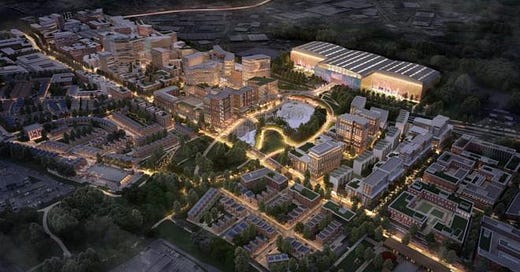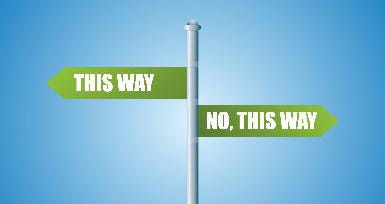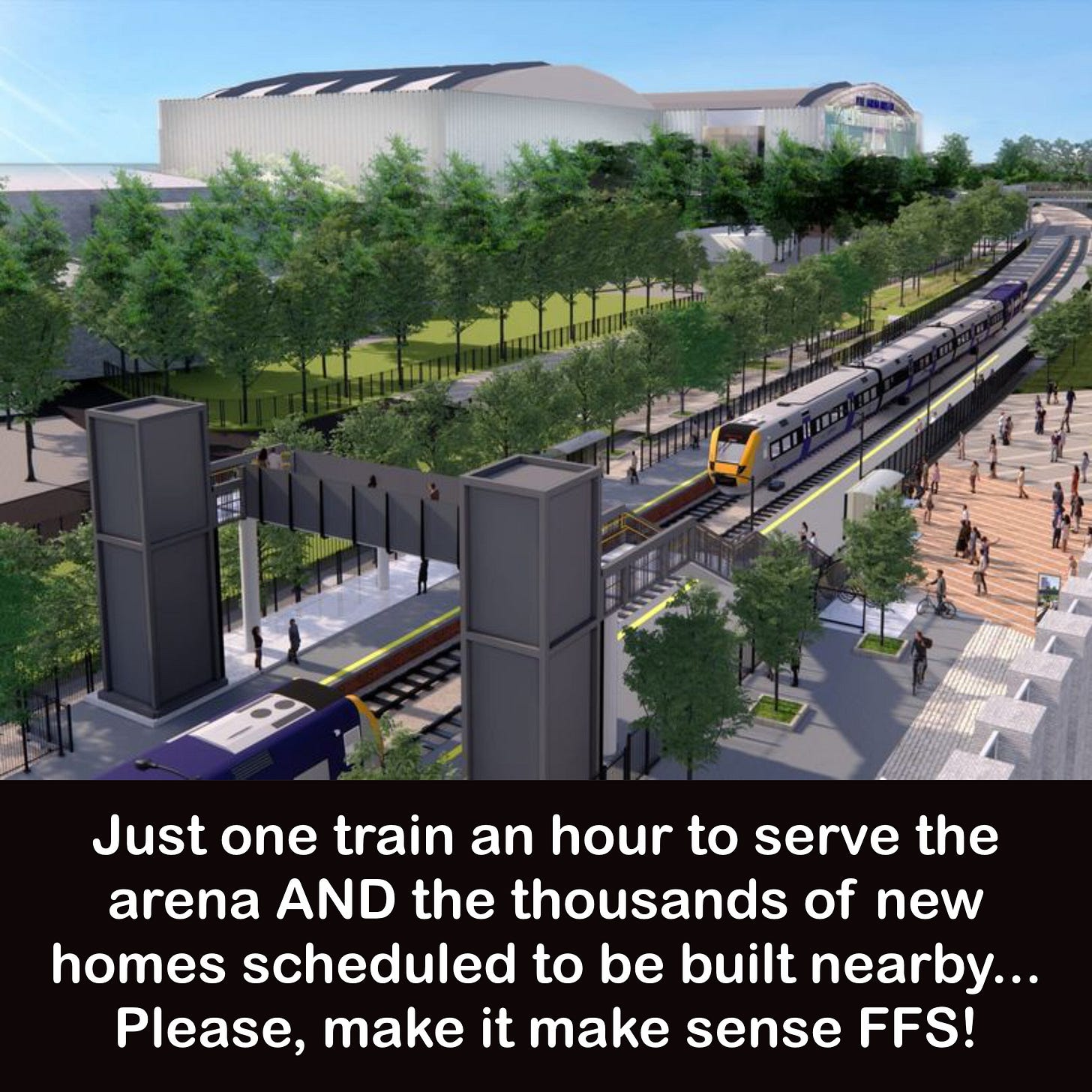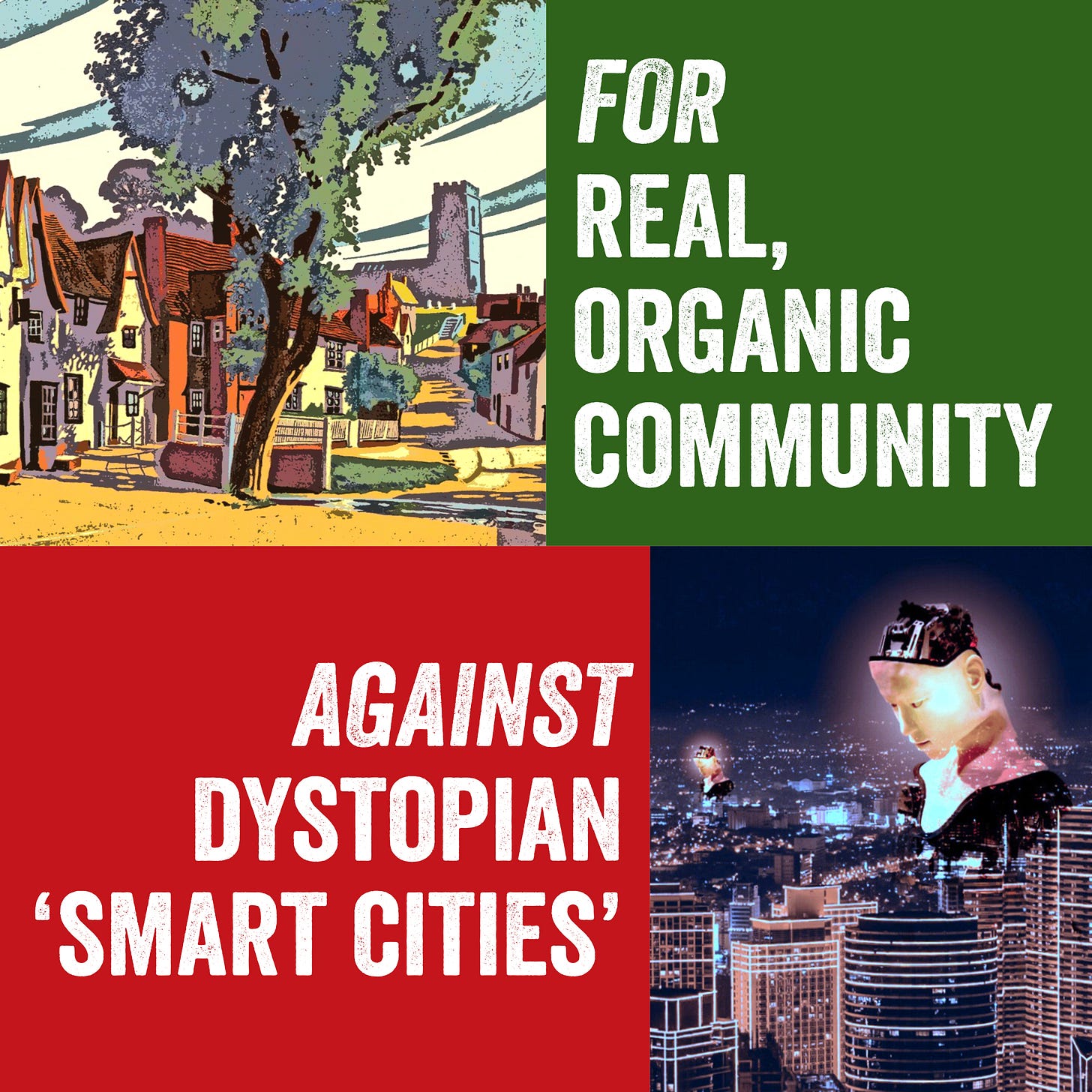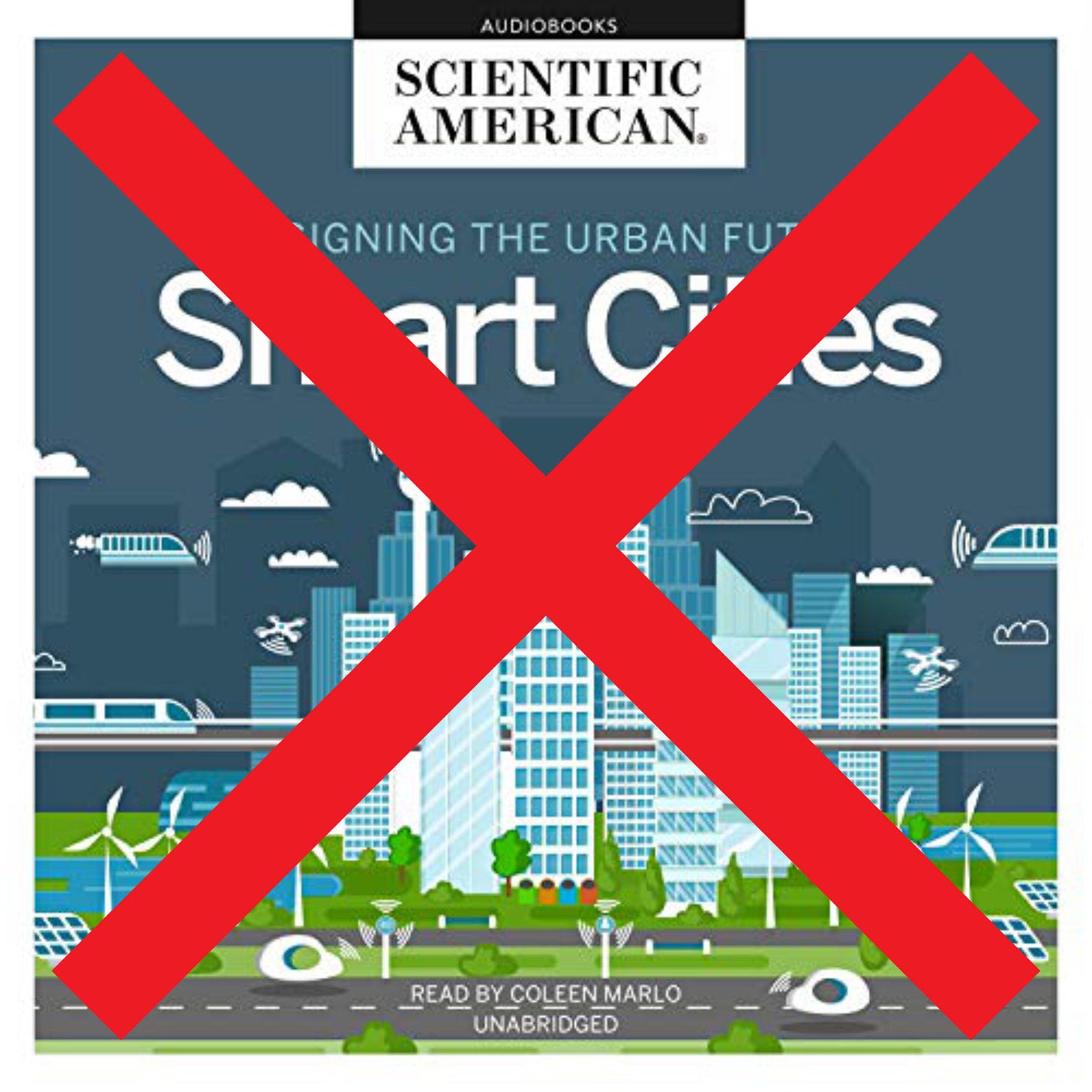On the one hand, we have the YTL Arena and the Brabazon housing development on the site of the former Filton Airfield in South Gloucestershire which, as detailed below, will inevitably end up generating a lot of extra vehicle journeys. On the other hand, people are being nagged and cajoled into giving up their cars and told to use public transport or so called 'active travel' such as cycling and walking. Yet all too often, the provision of alternative means of travel is inadequate so, despite all of the obstacles that are being thrown in their way, people understandably carry on driving their cars because it's the only realistic way of being able to get around. Conflicting signals about how we do or don't move around are what we're getting. The question is, where do we go from here? This is what this piece hope to start the process of addressing.
The YTL Arena and Brabazon
Work on the long awaited (for some) YTL Arena Bristol is finally due to start as detailed in this breathless puff piece in what passes for a local news outlet: Preparation work finally begins on long-awaited arena - Mia Vines Booth | B24/7 | 19.3.24. The development is on the site of the former Filton Airfield which is to the north of Bristol in South Gloucestershire. Alongside the arena, there will be a huge development of new homes as reported here: Green light for massive expansion of Filton airfield redevelopment at Bristol - Tom Lowe | Building Design | 1.3.24. This new neighbourhood will be known as Brabazon.
Originally, the new arena was scheduled to be built on land near Temple Meads railway station. Had that actually gone ahead, with the train and bus links available from Temple Meads, the proportion of people attending events there opting to use public transport would have been pretty high. However, for a range of complex and to be quite frank, murky reasons, it was decided to locate the arena right out in Filton.
South Gloucestershire Council has granted planning permission for a new railway station at North Filton that's intended to serve both the YTL Arena and Brabazon as detailed here: North Filton and Henbury train stations - Travel West and here: Permission granted for new railway station next to future Bristol Arena - B24/7 | 24.1.23. The indications are that initially the train service will be hourly. If you're lucky, at some point, it may go up to two trains an hour. Trains intended for local services here in the West Country tend to be two to three coaches long on average. If you get a four coach train, you've well and truly hit the jackpot!
The claims that the new railway station at North Filton, when it's eventually built, will serve the YTL Arena are complete and utter bullshit. One three coach train an hour wouldn't even make a dent in the 19,000 people attending an event at the arena. What passes for a bus service will make little impression. Given the capacity of the arena, the odds are that it will be serving an audience that will be coming from well beyond the Bristol region. How will the vast majority of people be getting to and from the YTL Arena? By car of course because there's no other feasible way of getting there.
As for claims that North Filton station will be serving the residents of Brabazon, they don't really stand up to scrutiny. One three coach train an hour in each direction is not going to provide enough capacity for a housing development that will end up with over 6,000 homes. If passengers waiting on the platform haven't got sharp elbows and a pushy attitude, there's a good chance they'll be left stranded because there's literally no space left on the train. As to whether a bus service that's in a state of permanent crisis will be able to provide an attractive public transport option, that's a moot point. There are so called 'active' travel options in the pipeline. Given how far out from Bristol the Brabazon development is, can you seriously imagine that the residents will be cycling to and from the city centre en masse? No, we can't either. So as with the YTL Arena, that leaves a lot of people with little option than to drive or otherwise, experience a pretty restricted life.
Set up to fail
Everything is heading in the wrong direction, isn't it? On the one hand, people are being nagged to leave their cars at home and use a combination of public transport, cycling and walking instead. Yet the public transport infrastructure isn't there to facilitate this. It can be argued that the cycling infrastructure is a long way from where it should be. Speaking as mere pedestrians, we often have cause to think that we're right at the bottom of the pecking order. Then there are the aforementioned developments at the YTL Arena and Brabazon, both of which will lead to an increase in road traffic in Bristol and the surrounding areas. You couldn't make it up, could you?
Regardless of some utterly bizarre planning decisions and a public transport system that's demonstrably failing, the rhetoric designed to make us adjust our lifestyles in order to emit less CO2 shows no sign of letting up. This is despite it being blatantly obvious to any thinking person that everything is set up to frustrate any attempts to adjust our lifestyles. Making people feel that whatever they do, they can't win will generate cynicism and with some, outright hostility to being lectured on how to lead their lives. It really feels that we're being set up to fail, doesn't it?
Is there a way out of this?
We have attempted to pose some possible solutions: Where we stand on 15 minute neighbourhoods 11.1.23. Neither of us drive so instinctively, we have a fair bit of time for the concept of a 15 minute neighbourhood. Being non drivers and relying on public transport and walking greatly influenced our choice of where to live when we relocated from Thurrock down to the West Country, which is why we live very close to Keynsham town centre and also to the railway station. Essentially, we found our own 15 minute neighbourhood. However, we're also acutely aware of how what seems to be a pretty sound concept for the future of our urban areas from the cities through the towns to the suburbs and even the villages can be twisted and used as a means of social control. Restricting people's ability to move around is a classic means of social control.
We've got a dilemma haven't we? There is the possibility of planning our communities that will reduce unnecessary car journeys. The point is that it has to be brought about in such a way that the vast majority of people will be happy to own the concept and will willingly work towards bringing it about. The problem is that as pointed out in this piece, the planning system delivers outcomes that necessitate more car use! This is exacerbated by a public transport system that's not adequate to meet current needs, let alone any expansion of demand.
Until a way can be found to persuade people that restructuring our communities so that unnecessary car journeys are reduced can be found, many will resist it. One reason they'll resist it is that rightly, many people know that they have very little control over the big decisions taken by government on behalf of their corporate and fiscal masters that shape our lives. A consequence of this is that people will understandably resist what they see as social control. Restricting how people move around is seen as a coercive form of social control - it will be resisted.
So until that balance of power is redressed by a drastic change in social and economic relations (a.k.a. a revolution) we won't get anywhere. Some political tendencies have joined the dots and make explicit the links between who holds the power and our inability to properly shape the future direction of the communities we live in to bring about an equitable, inclusive and sustainable future. One that also respects individual freedom. Other tendencies fall back on what's perceived to be hectoring people to change their lifestyles - a stance which understandably generates a lot of resentment.
Unless the issues of who holds power and whose interests it's being exercised in is addressed, we'll never get to a point where there will be a consensus towards developing our communities in a way that's sustainable and future proofed. We'd like to suggest that those tendencies who hector people about their choice of travel mode take a step back, reflect on why they're getting hostility and then think about how they can address the issue of power relations that's holding us all back. Then, we may be able to develop the kind of holistic, joined up thinking we need to go forwards to fight for the future we want.


